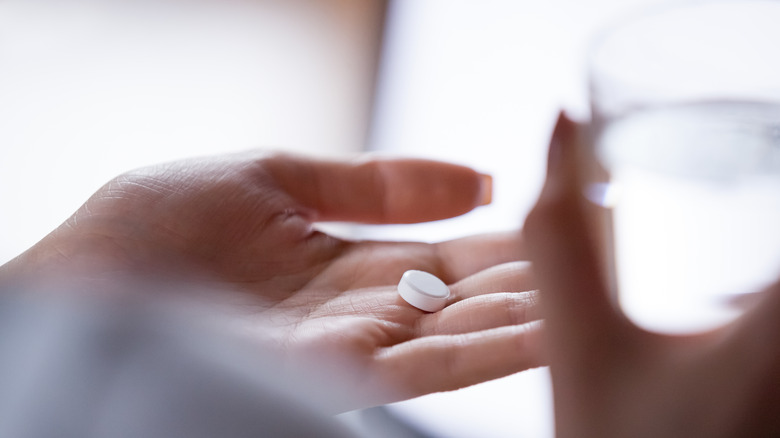Why You Should Be Totally Honest With You Doctor About Drug Use
Opening up about drug use can be daunting, especially when there's a doctor present. Many people intentionally don't tell their doctor the whole truth, whether drugs are in the picture or not. A 2019 study published in the Canadian Medical Association Journal notes that 4 out of 5 Americans are dishonest to their doctors — to the point of ruining their health. According to the study, fear of judgment is one of the main reasons why people withhold information. However, there's no need to be fearful, as doctors have seen it all.
Feeling the need to keep your drug use information to yourself is understandable. However, being dishonest with your doctor can lead to various consequences, whether intentional or unintentional. To properly diagnose any condition and offer the right treatment, your doctor might require information about your medical history, including any prescribed or recreational drugs you take, as well as any known allergies or health conditions that run in your family.
Why honesty about drug use is important
If you're dishonest with your doctor, you might be prescribed a medicine for a condition that will interact with the drugs you're taking. The U.S. Food and Drug Administration (FDA) notes that all drugs carry inherent risks. A typical case is methamphetamine. Drugs.com advises against combining methamphetamine with sertraline, as it may cause tremors, muscle spasms, and stomach cramps. You may be at risk if your dishonesty causes your doctor to wrongly prescribe medication that can interact with the recreational drugs you're taking. Also, some drugs like cocaine might increase the risk of stroke. The American Heart Association notes the association between acute cocaine use and the risk of ischaemic strokes and hemorrhagic strokes.
Hiding your drug use from your doctor might also lead to a wrong diagnosis. They might diagnose another condition related to your symptoms, which can be risky if a prescribed medication has dangerous side effects. According to a 2002 study published in the British Medical Journal, diagnostic errors affect 12 million adults in the U.S. annually. The Mayo Clinic asserts that poor communication between patients and their doctors is a major cause of medical errors. For this reason, it's important to know your body, your symptoms, and accurately communicate all the drugs you've used to your doctor if something is wrong.
Why you shouldn't worry about being upfront
Revealing drug use is a good best practice to keep any doctor-patient relationship effective. Although confidentiality concerns many, this isn't a reason to withhold any information. Many doctors view confidentiality as a key part of the professionalism and ethics required to carry out their duties. They also know that the public views any breaches of the patient-doctor privilege as a career sin and a major reason to refuse their services, according to a 2003 study published in the Journal of Medical Ethics.
The Centers for Disease Control and Prevention also notes that the Health Insurance Portability and Accountability Act permits — but doesn't require — a covered entity (like your health care provider) to use or disclose private health information. This may only occur in specific cases, like workers' compensation. Under this act, the information you can trust doctors to protect includes medical records, nurse conversations, and billing information (via the U.S. Department of Health and Human Services).


